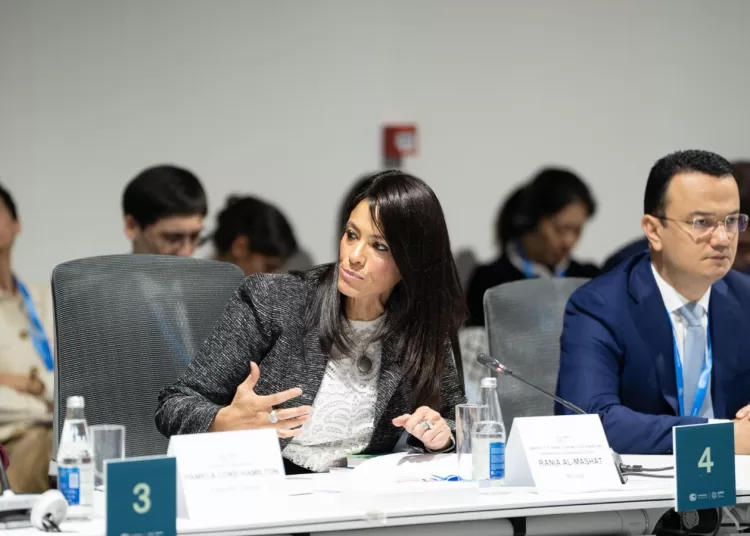Egypt’s Minister of Planning at the International Economic Cooperation, Rania Al-Mashat, said on Friday the Baku Initiative for Climate Finance, Investment, and Trade (BICFIT), launched by Azerbaijan during its presidency of COP29, expands the horizons of climate finance by focusing on diverse mechanisms, such as foreign direct investments (FDIs), innovation, green free zones, and small and medium-sized enterprises (SMEs), among others.
Participating in a high-level meeting on the Baku Initiative in Azerbaijan, Al-Mashat said that Egypt joined BICFIT to enhance its climate finance efforts, integrate climate finance agendas with investment and trade, and drive global efforts to achieve Nationally Determined Contributions (NDCs).
Baku Initiative provides an innovative platform for multilateral and cross-sectoral dialogue and partnerships, aimed at fostering international co-operation and promoting the socio-economic benefits of climate finance, investment, and trade policies.
“This supports achieving the Sustainable Development Goals (SDGs) and ensures just green transitions,”she said.
Minister Al-Mashat said that the Sharm El-Sheikh Guide to Fair Financing, an initiative from Egypt’s presidency of COP27, includes many principles echoed in the Baku Initiative. The guide aims to convert climate finance pledges into actionable solutions, particularly for developing countries disproportionately affected by climate change.
Innovative platform for dialogue
Minister Al-Mashatsaid that the Baku Initiative for Climate Finance, Investment, and Trade provides an innovative platform for dialogue and multilateral and interdisciplinary partnerships to enhance international cooperation, the social and economic benefits of climate finance, investment, and trade policies, in order to drive the achievement of sustainable development goals (SDGs) and ensure equitable green transitions.
“The initiative is based on a vision calling for strengthening international co-operation on the interlinkages between climate finance, investment, and trade among governments and all relevant stakeholders to achieve climate goals, including through the preparation and implementation of Nationally Determined Contributions (NDCs) in ways that support the achievement of SDGs,” she explained.
Baku Initiative’s 5 pillars
Minister Al-Mashat highlighted the five pillars of the initiative, which include: promoting climate finance by encouraging development banks, multilateral climate funds, non-profit organizations, and development partners to enhance climate finance in line with NDCs and national development plans; attracting foreign direct investment (FDI).
She has made it clear that one of the core aspects of the Baku Initiative is fostering dialogue through the development of a framework for institutional co-operation and partnerships to support long-term ambitions as part of global efforts to enhance climate transformation.
Boostingrole of national platforms
Minister Al-Mashatsaid the BICFIT initiative underscores the role of national platforms as essential mechanisms for coordinating international and local resources to achieve climate goals in emerging markets and developing economies. In this regard, Egypt has launched the national platform for the “NWFE” programme, which has become a model for national platforms successfully attracting private sector investments for climate mitigation and adaptation.
The success of the program has garnered global attention and serves as a practical example of what international reports, initiatives, and institutions advocate, having achieved tangible results in debt-for-climate swap mechanisms.






Discussion about this post